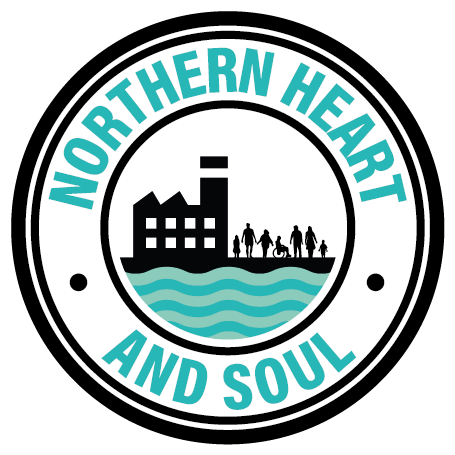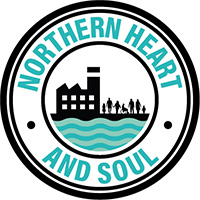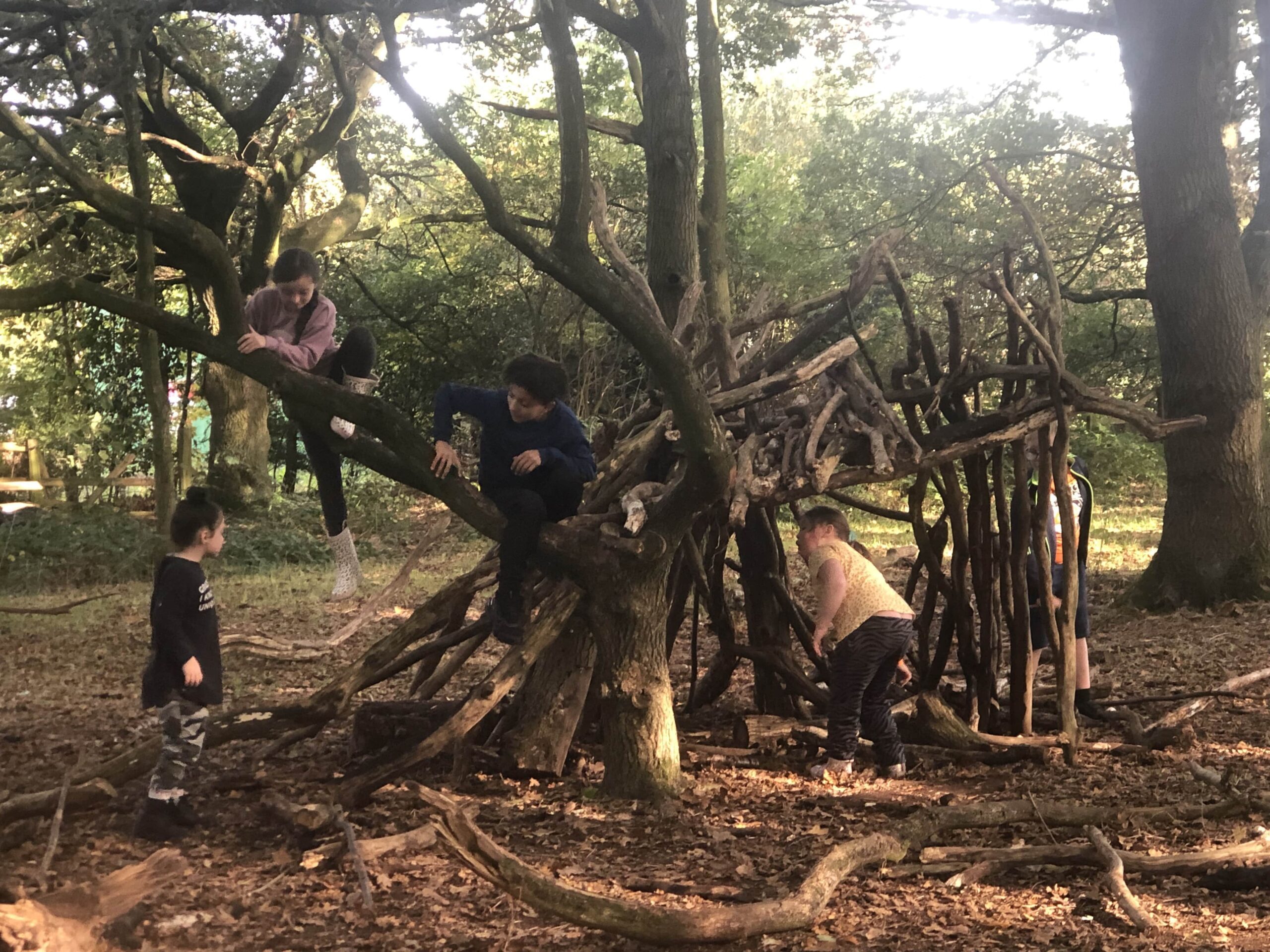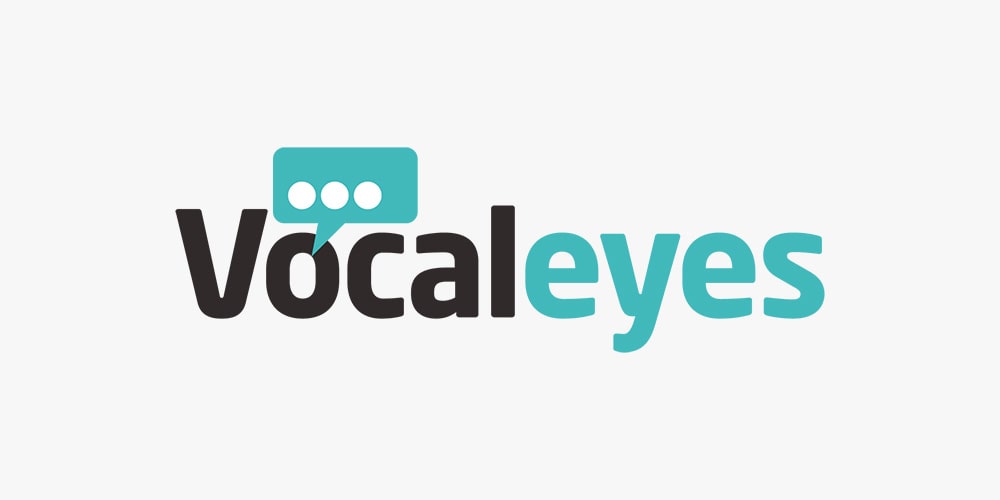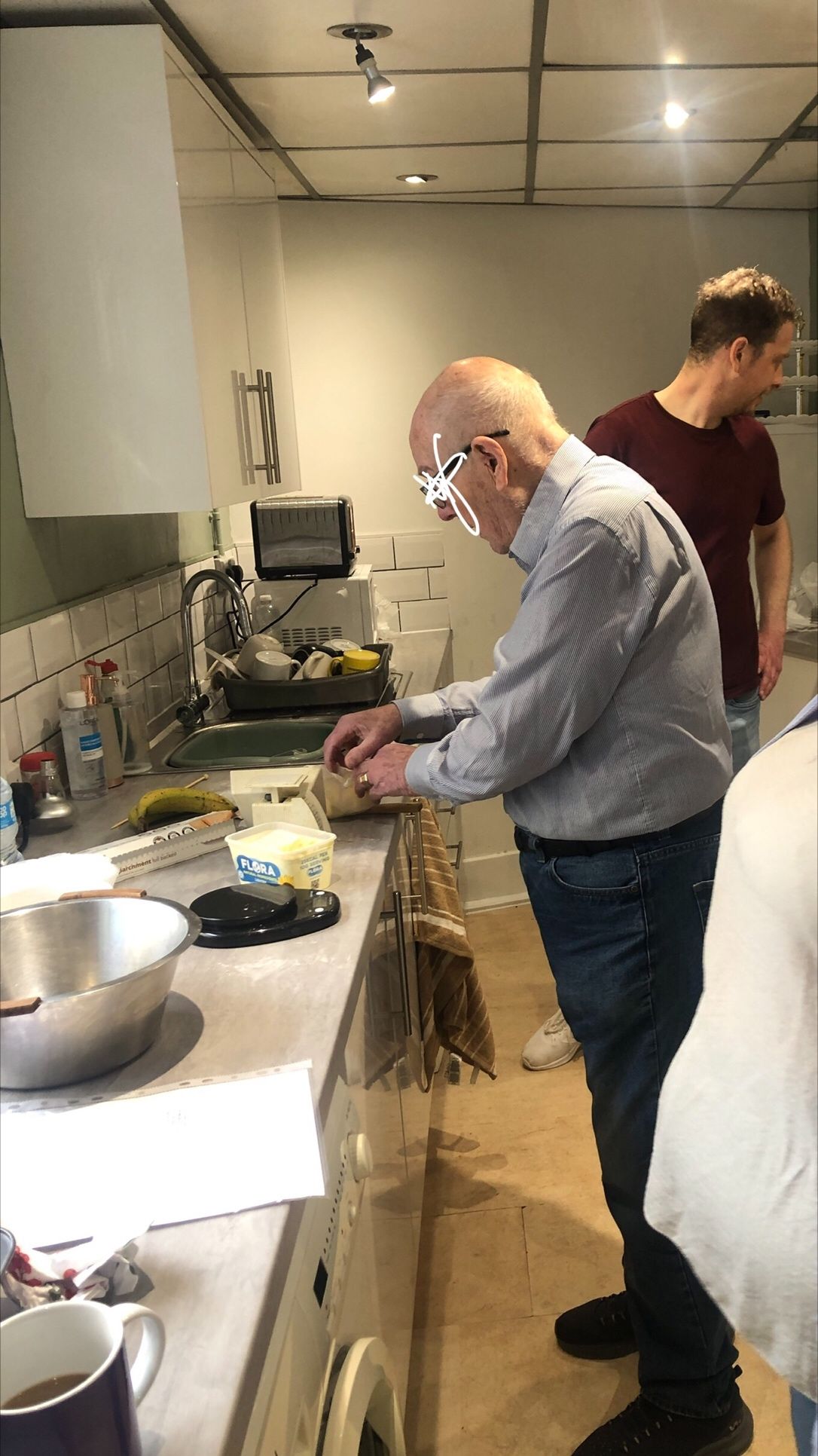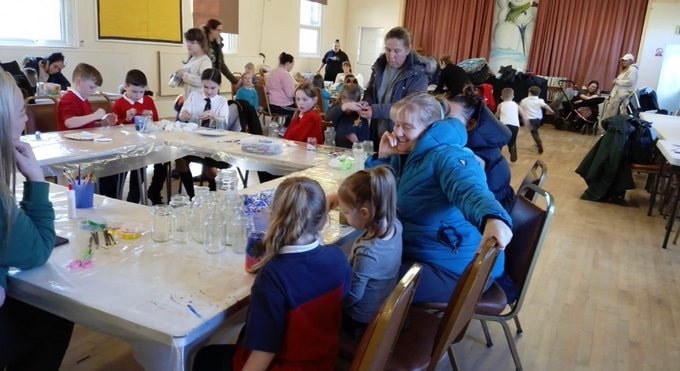

Care Full Communities
One of the dreams that we have here is developing care full community alternatives, particularly to the current social care system for children and families.
When we say community alternatives, we don’t mean free, unfunded and run by volunteers – that’s exploitation. On the other hand we do need to spend some time deep in the gift and solidarity economy working out what that might look like according to the local context.
It’s natural that as community connection deepens the way neighbours and peers provide a cradle for local families strengthens. Anyone who has spent any time in communities creating open space for mutual and reciprocal support, so that people can cultivate community power together, will have seen this with their own eyes. As communities rekindle their role and function they also begin to remember that they don’t need permission to act.
We’ve noticed locally the impact of the long term over reaching of professionals in community life, as eloquently described in John Deere and the Bereavement Counsellor by John McKnight. It’s always difficult to say this, as people who are unfamiliar with this methodology of power building, confuse the argument of over reach with support for cuts and big society rubbish.
Over the last few years the more time we spent alongside neighbours in this neighbourhood, the more we noticed a reluctance to talk with each other and together about problems being experienced. There was lots of talk about other people as problems. Problems closer to home seemed cloaked in shame and reserved for conversations with professionals, or whispered about in corners. And yet, those problems never seemed to get sorted because professionals aren’t around long enough to build the trust, shifting problems around from team to team and person to person. With staff often pressured by line managers, and service targets to close, close, close. I know this, I’ve been one of those managers.
So what’s happened in lots of places is that instead of talking about community problems with each other, the conversation has been replaced with conversations about the problem with services. Accountability to each other has been replaced with finger pointing at the broken system. As has what grows out of learning that others are suffering and struggling just like you – solidarity and mutuality. The more you talk about the problems you’ve internalised, the more you realise the problems aren’t yours. It opens the door for clear seeing and collective action.
That’s the risk when services try to do the job of natural communities. An unintended and harmful consequence is displacement. And because services need to justify their own existence they are less likely to practice in liberatory ways and more likely to want to be the ones doing all the empowering in search for the case study. Of course we need and want services, but there’s a sequence and a form to this work that enables cultivation rather than causing harm to the local eco system.
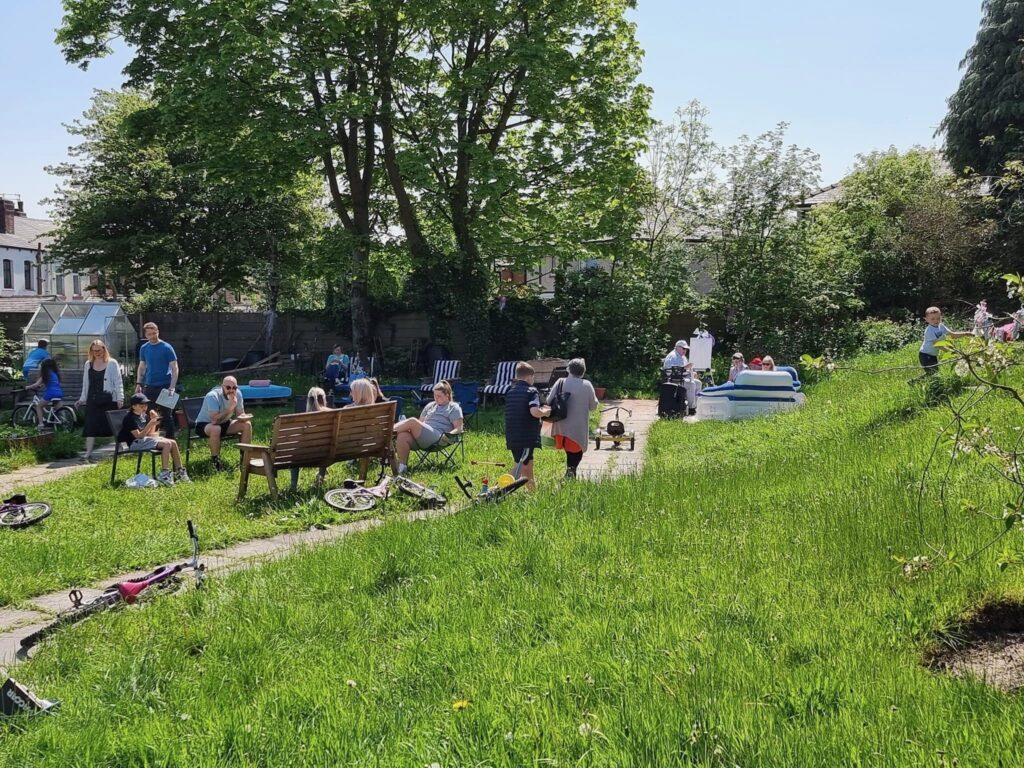
In the local open social spaces where talking is what we do, you can just see the relief and unity when people realise that others have problems just like theirs. Whether that’s about parenting, health and wellbeing, housing, relationships, poverty, debt, grief – or whatever shows up on the day. We were talking a lot about suicide and suicidal thoughts last week, and you could just feel the solidarity in the room. It acts like a safety net, if you create the space where conversations can unfold themselves over a game of cards or a bit of art. In addition to a safety net, it becomes a space out of which new life can grow. We have local people really interested in growing a peer support offering like the one organised by People Focussed Group in Doncaster. Connecting neighbourhoods with other neighbourhoods to grow new things is one of the real exciting functions of the Neighbourhood Democracy Movement. Putting communities right at the centre is special. When I think about the possibilities of what we can create together in this community and in communities all over the place, I feel really hopeful. And it’s not just me who’s feeling hopeful.
“I’m hopeful cos I’ve got my great granddaughter living with me. I’m hopeful for her. Try my best to make her a good citizen with good manners. Since I’ve joined this group, it’s just brilliant, it opens your eyes, you’re meeting people, you’re doing things and you know sometimes when you are just talking about things, it helps. I used to have panic attacks a lot, and I do suffer from anxiety, like a lot of people do, even coming out of the house. Like before I joined here, I really didn’t have any friends. So since I’ve been coming to these community things it’s just been fabulous. There is always someone to listen. I do think it’s a good thing. Get Britain talking.” (SBHG neighbour. Nov 22)
